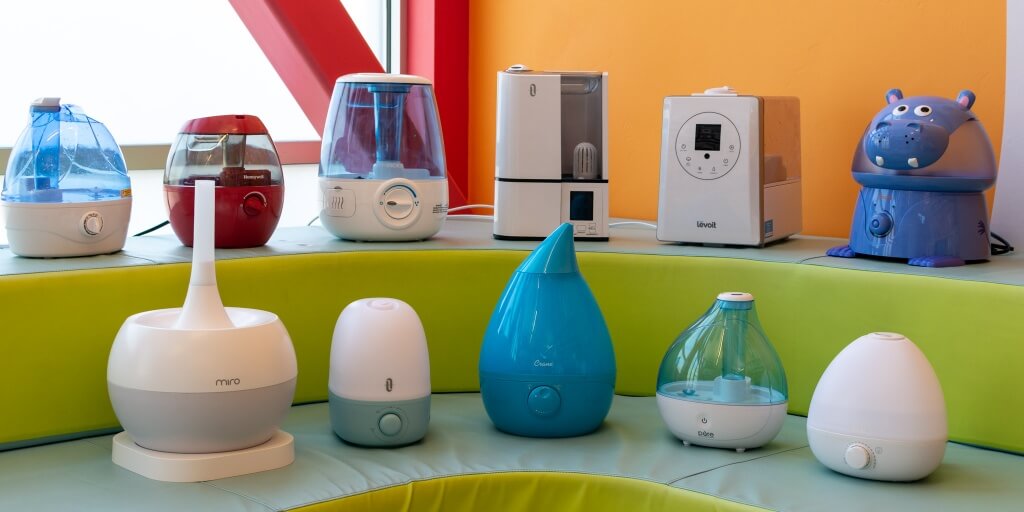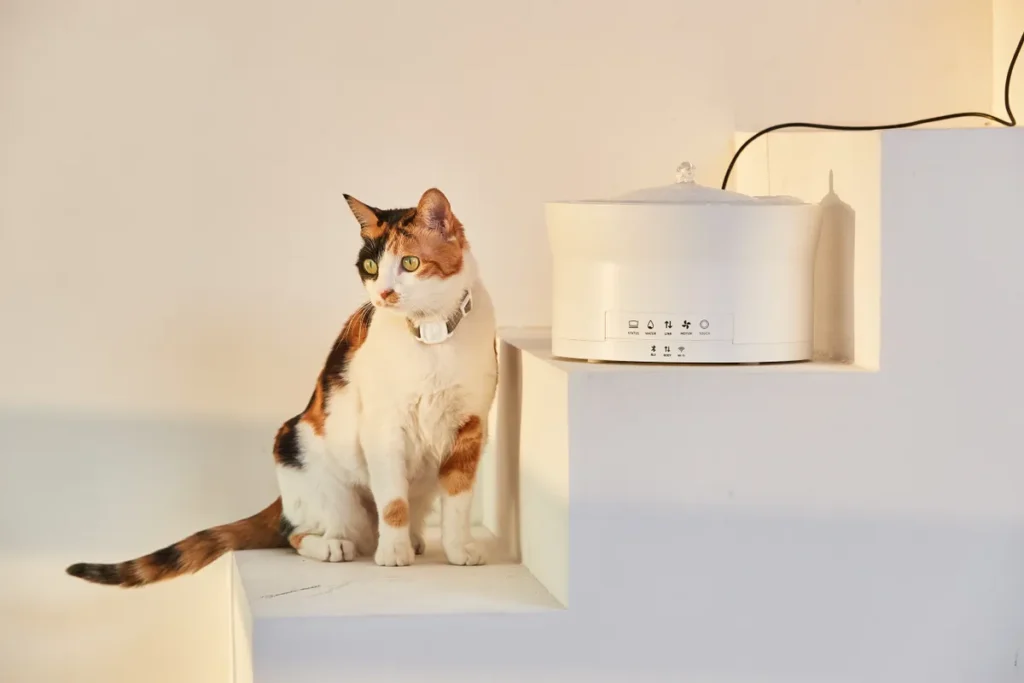Introduction
Oil diffuser vs. Humidifier – Which One to Choose?
Recent years have seen a massive increase in the popularity of oil diffusers and humidifiers as people have grown more concerned with indoor air quality and general well-being. These gadgets are intended to improve the atmosphere of a place while offering particular advantages.
To better help readers comprehend the distinctive characteristics and functionalities of oil diffusers and humidifiers, we shall explore their differences in this blog. By the end, you will have the information you need to make the decision that best satisfies your requirements, whether it be producing a pleasing scent or preserving the ideal humidity levels in your home.
I. Understanding Oil Diffusers:
An oil diffuser is a device made specifically to disseminate essential oils into the air, enveloping the area with a pleasant smell.
Its primary purpose is to make interior spaces, such as homes, businesses, or other indoor settings, tranquil and fragrant. Essential oils are broken down into tiny particles and released into the air as a fine mist or vapor by oil diffusers.

Advantages of Oil Diffusers:
There are several advantages to using essential oils in oil diffusers for physical and mental well-being. Among these advantages are:
- Relaxation and Stress Reduction: Calming essential oils like lavender and chamomile, which have the ability to encourage relaxation, can help relieve stress and anxiety.
- Improved Sleep: Lavender and vetiver essential oils are well known for their sleep-inducing qualities. A good night’s sleep can be had by diffusing these oils before bed.
- Enhancement of Mood: Certain essential oils, such as peppermint and citrus oils (such as lemon and orange), have uplifting characteristics that help improve mood and foster a good environment.
- Help for the Respiratory System: Eucalyptus and tea tree essential oils, for example, contain characteristics that help the respiratory system. These oils can facilitate easier breathing by clearing congested airways when diffused.
- Increased Focus and Concentration: Some essential oils, such as peppermint and rosemary, increase mental clarity and focus. While studying or working, diffusing these oils may increase productivity.
Oil Diffuser Types:
There are various varieties of oil diffusers on the market. Here are three typical examples:
- Ultrasonic Diffusers: These diffusers release a fine mist of essential oils into the air using ultrasonic vibrations. They frequently have a water tank, which is used to convey and dilute the oils. Due to its quiet operation and capability to increase air humidity, ultrasonic diffusers are widely used.
- Nebulizing Diffusers: Nebulizing diffusers atomize essential oils into minute particles, which are subsequently dispersed into the air using pressurized air. These diffusers are thought to be very successful at maintaining the therapeutic characteristics of the oils because they don’t require heat or water.
- Heat Diffusers: By gradually warming the essential oils with heat, heat diffusers cause them to evaporate and release their aroma into the air. These diffusers are frequently straightforward and inexpensive. However, they need to improve at preserving the full therapeutic advantages of the oils.
When selecting the best oil diffuser for your needs, you must consider elements like convenience of use, coverage area, noise level, and personal tastes. Each type of oil diffuser has its own set of characteristics and pros and downsides.
II. Understanding Humidifiers:
A humidifier is used to increase humidity in enclosed places. Its primary purpose is to counteract dryness by raising the ambient humidity levels. By dispersing water vapor or steam into the air, humidifiers help to replenish moisture and improve the comfort of the surrounding environment.

Humidifier Benefits
Maintaining humidity levels in your home or business has various advantages for your general health and well-being. The following are some benefits of utilizing humidifiers:
- Better Respiratory Health: Dry air can irritate the respiratory system, resulting in a dry throat, coughing, and a higher risk of developing respiratory infections. By introducing moisture to the air, humidifiers help to relieve these symptoms by facilitating breathing and lowering the likelihood of respiratory problems.
- Reduced Allergic and Asthmatic Symptoms: Allergic and asthmatic symptoms like nasal congestion, wheezing, and itching eyes can be made worse by dry air. Humidifiers can assist in reducing these symptoms by raising humidity levels, bringing comfort to those who suffer from allergies or asthma.
- Relieving Dry Skin and Irritation: Dry air can lead to flakiness, itching, and skin dryness. Humidifiers increase the humidity in the air, which hydrates the skin and lessens dryness for softer, more supple skin.
- Alleviation of Cold and Sinus Congestion: Humidifiers can help with the symptoms of sinus congestion and the common cold. The discomfort brought on by colds, allergies, or sinus infections is lessened by moist air, which also helps to clear nasal passages and relieve congestion.
- Wooden furniture and floors should be protected since dry air can cause them to crack or shrink. Humidifiers can assist in maintaining the integrity of hardwood surfaces, preventing damage, and extending their lifespan by maintaining correct humidity levels.
While humidifiers have many advantages, it’s vital to keep the humidity levels comfortable (usually between 30% and 50%) to prevent excess moisture, which can promote mold formation or mildew.
By introducing a humidifier, you may make your home more pleasant and benefit from the advantages of balanced humidity on your skin, allergies, respiratory health, and general well-being.
Types of Humidifiers
- Evaporative humidifiers: Fans blow air across a moistened wick or filter in evaporative humidifiers. As the water in the wick evaporates, the air becomes more humid. These humidifiers are inexpensive and require minimal maintenance; filter and wick changes are only necessary occasionally. They are appropriate for larger spaces and add natural, invisible moisture to the air.
- Ultrasonic Humidifiers: Ultrasonic humidifiers create a fine mist by employing ultrasonic vibrations to break water into tiny particles. Depending on the model, they can emit warm or chilly mist while operating quietly. Wicks and filters are unnecessary with ultrasonic humidifiers, which also save electricity. However, if used with hard water, they could produce white mineral dust and must be cleaned frequently.
- Steam Humidifiers: Steam humidifiers, usually called vaporizers, create steam by heating water, which is released into the atmosphere. They effectively treat respiratory conditions or congestion by immediately and visibly delivering humidity. Steam humidifiers use more energy and should be cleaned frequently to avoid mineral accumulation. Hot steam can cause burns. Thus, caution is advised.
Key Differences: Oil diffuser vs Humidifier
- The primary purpose of oil diffusers is to disperse essential oils into the air to provide a pleasing aroma and ambiance. They are frequently used for aromatherapy, relaxation, stress reduction, and mood-enhancing purposes. Humidifiers, however, are primarily concerned with introducing moisture into the air to counteract dryness and maintain ideal humidity levels in indoor environments.
- How Essential Oil Diffusers Work: Essential oils are broken down into tiny particles and released into the air as a fine mist or vapor by oil diffusers. They frequently need heat or water to speed up the diffusion process. On the other hand, humidifiers add moisture to the air by discharging water vapor or steam into the surrounding area. They can produce and spread moisture via wick, heat, or ultrasonic vibrations.
- Health Advantages: Oil diffusers are renowned for their aromatherapy advantages, such as calming, stress reduction, better sleep, and mood enhancement. Essential oils can have various effects on mental and emotional health when inhaled. However, humidifiers have advantages for allergies, the skin, and respiratory health. They relieve dryness-related symptoms, lessen respiratory congestion, and soothe irritated and dry skin.
- Maintenance and Cleaning: Oil diffusers often need to be cleaned regularly to prevent oil buildup and ensure peak performance. Depending on the diffuser type, several cleaning techniques may be used. On the other hand, humidifiers need routine upkeep to avoid mineral or bacterial development. This frequently entails cleaning the water tank, replacing filters (in some types), and maintaining proper hygiene to prevent potential health hazards.
- Individuals can make an informed choice based on their needs and preferences by being aware of these critical distinctions between humidifiers and oil diffusers. Choosing the proper device will ensure a more comfortable and advantageous interior environment, regardless of whether you want to improve aroma and ambiance or regulate moisture.

Choosing the Right Option for Your Needs:
There are a few essential elements to consider when choosing between an oil diffuser and a humidifier to make the best decision for your needs.
- Determine your main objective. An oil diffuser is the best choice if you want to take advantage of pleasant scents and the advantages of essential oils, such as relaxation or stress alleviation. A humidifier is a superior option to combat dryness, maintain adequate humidity levels, and enhance respiratory health or skin relief.
- Room Dimensions: Consider the size of the space where you intend to use the gadget. While some diffusers and humidifiers may cover more significant areas, some are meant for smaller rooms. To ensure optimal performance, pick an appropriate gadget for the space.
- Determine your level of noise tolerance. Some humidifiers and diffusers with fans or motors make noise, while others run quietly. Select a device that matches your tolerance for noise.
- Consider your readiness to carry out routine maintenance work. Diffusers could need regular cleaning and oil changes, whereas humidifiers might need the water tank cleaned and the filters changed. Choose a gadget that fits your needs and tastes while considering the maintenance requirements.
You’ll be better able to decide if you take these things into account. Select an oil diffuser if the atmosphere and essential oils are important. Choose a humidifier if you need to address dryness and humidity levels. When choosing the best gadget for your unique needs, keep in mind to take room size, noise level, and maintenance requirements into account.
Conclusion:
In conclusion, it’s crucial to consider your individual needs and tastes when choosing between an oil diffuser and a humidifier. An oil diffuser is the best option if you’re looking for a gadget that will provide atmosphere, relaxation, and the advantages of essential oils. However, a humidifier is a superior choice if you want to combat dryness, maintain adequate humidity levels, and enhance respiratory health or skin relief.
You may make an informed choice that supports your objectives by considering the use, room size, noise level, and maintenance needs. Whether you want to add moisture to the air or create a pleasant smell, remember to select a device that meets your demands.
Humidifiers and oil diffusers have unique benefits, and the best option for you depends on your tastes and situation. Regardless of your choice, integrating these technologies into your home can improve your overall well-being and make it more pleasant inside.
Spend time determining your needs, considering the suggestions, and choosing the gadget that best satisfies them. Enjoy its advantages to your environment and enrich your indoor experience, whether you select an oil diffuser or a humidifier.



